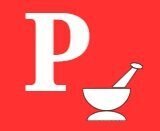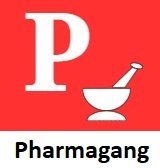We are giving BPSC Drug Inspector syllabus and pattern in this post. Bihar Public Service Commission Drug Inspector exam and interview will be held in 2023.
Selection Procedure
- Written Exam and interview.
- Written exam will carry 400 marks. Interview will carry 50 marks.
- Based on the result of written examination. Candidates 2.5 times the number of vacancies will be called for interview. It is mandatory to be present for interview.
- Final merit list will be prepared from total marks secured in written exam and interview.
Minimum Qualifying marks for written exam: UR: 40%, BC: 36.5%, EBC: 34%. SC/ST/Female/PwD: 32%
BPSC Drug Inspector Exam Pattern
- Written Exam will have four papers having objective multiple choice questions. Each paper will have 2 Sections of 50 marks each and 2-hour duration each.
- So total of 8 sections will command 400 marks. And total duration of written exams will be 16 hours.
| Section | Subjects | Max Marks | Total Que | Duration |
Paper 1 | ||||
| Section 1 | Pharmaceutics | 50 Marks | 50 | 2 hour |
| Section 2 | Pharmaceutical Analysis | 50 Marks | 50 | 2 hour |
Paper 2 | ||||
| Section 1 | Medicinal Chemistry | 50 Marks | 50 | 2 hour |
| Section 2 | Pharmacognosy | 50 Marks | 50 | 2 hour |
Paper 3 | ||||
| Section 1 | Anatomy, Physiology and Health Education | 50 Marks | 50 | 2 Hour |
| Section 2 | Pharmacology and Toxicology | 50 Marks | 50 | 2 Hour |
Paper 4 | ||||
| Section 1 | Pharmaceutical Jurisprudence and Hospital Pharmacy | 50 Marks | 50 | 2 Hour |
| Section 2 | Microbiology | 50 Marks | 50 | 2 Hour |
BPSC Written Exam Syllabus
Paper-1 Section-1- Pharmaceutics
1. Tablets and Tablet Coating
2. Capsules
3. Emulsion, Suspension, Ointment and Cream
4. Ophthalmic Solution
5. Blood Fluids and Electrolytes
6. Parenteral Preparation and Quality Control
7. Surgical Dressing
8. Biological Preparation (Sera, Vaccine and Anti-sera)
9. Bio Pharmaceuticals
Paper-1 Section- 11 – Pharmaceutical Analysis
1. Limit Test
2. Bio- Assay
3. Sterility Test
4. pyrogen test
5. Theory and application of calorimetry, fluorimeter, nephelometer and turbidometer, spectrophotometer
6. Karl Fischer titration
7. Alcohol determination
8. Microbiological Assay of Vitamins, Antibiotics and Vaccine Preparation
Paper-2 Section-I – Medicinal Chemistry
Definition, classification, structure, storage, preparation and brand names of the following classes of drugs
1. Steroids
2. Synthetics and Hypnotics
3. Psycho – Therapeutic Agents
4. Anti-histaminic agents
5. Analgesics (narcotic, non-narcotic and NSAIDs)
6. Cardiovascular Agents
Paper-2 Section-II- Pharmacognosy
Sources, chemical constituents, uses and adulterants of the following classes of natural Drugs
1. Rauwolfia
2. Ipecacuanha
3. Belladona
4. Cinchona
5. Cinnamon
6. Digitalis
7. Senna
8. Aloe
9. Nux vomica
10. Opium
11. Kurchi
12. Brahmi
13. Tulsi
14. Bael
15. Ephedra
Paper-3 Section-I- Anatomy, Physiology and Health Education
Basic information about the following systems:
Anatomy and Physiology
1. Digestive System
2. Circulatory System
3. Respiratory System
4. Urinary System
5. Nervous System
6. Reproductive System
7. Sense Organs
Health Education
1. Nutrition
2. First Aid
3 Population Control
4. AIDS control
Paper-3 Section-II- Pharmacology and Toxicology
Introduction and General Principles
1. Mode of Action
2. Drug Receptor
3. Drug Interactions and Drug Antagonism
4. Absorption, Distribution, Metabolism and Excretion of Drugs
5. routes of administration
6. Bioavailability
7. Drug Dependence and Addiction
8. Drug Abuse and Toxicity
9. Adverse Drug Reaction and Drug Allergy
10. Biostatistics
Paper-4 Section-1- Pharmaceutical Jurisprudence and Hospital Pharmacy, Pharmaceutical Jurisprudence
1. The Drugs and Cosmetics Act, 1940 and the Rules thereunder, 1945 with all amendments
2. Pharmacy Act 1948
3. Drugs (Prices Control) Order, 2013
4. Drugs and Magic Remedies (Objectionable Advertisement) Act 1954 and Rules 1955
5. NDPS Act and Rules
6. Medicinal and Toilet Preparation (Excise Duties) Act 1955 and Rules
7. Trademark Act
8. Pharmaceutical Ethics
Hospital Pharmacy
1. Handling of Prescription
2. Incompatibilities
3. Storage Conditions of Drugs
4. Clinical Pharmacy and its role in Hospitals
Paper- 4 Section – II- Microbiology
1. Classification of Microbes and Taxonomy.
2. Identification of Microbes, Stains and Type of Staining Techniques.
3. Control of Microbes by Physical and Chemical thud Disinfection Factors Influencing Disinfectants. Dynamics of Disinfection, Disinfectants and Antiseptics and their Evolution.
4. Sterilization, Different Methods Validation of Sterilization Methods and Equipment.
5. Sterility Testing of All Pharmaceutical Products.
6. Immunity Primary and Secondary. Defensive Mechanism of Body Microbial Resistance
7. Method of preparation of official sera and vaccines.
8. Microbiological methods for standard digestion of antibiotics, vitamins and amino acids. Immune Assay. Assessment of a new antibiotic and testing of antimicrobial activity of new substances.
You May Also Like:
Recent Pharmacist government Jobs
Salary Of Drug Inspector In India
Previous Year Pharmacist, Technician, Paramedical papers

